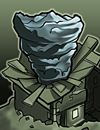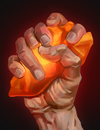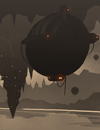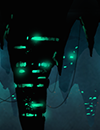The London Horticultural Show: Difference between revisions
mNo edit summary Tag: visualeditor-wikitext |
No edit summary Tag: visualeditor |
||
| Line 5: | Line 5: | ||
</gallery>|date=Summer of 1899 (2023)|recurring=No|alias=The Starved War<ref>{{Citation|https://fallenlondon.wiki/wiki/A_Cultural_Exchange|A Cultural Exchange|Fallen London|}} ''"Many Londoners refer to the incident with the stalactite [...] 'the Horticultural Show'. Others, [...] however inaccurately, the 'Starved War'."''</ref>|notable_figures=[[Starved Men]]<br> | </gallery>|date=Summer of 1899 (2023)|recurring=No|alias=The Starved War<ref>{{Citation|https://fallenlondon.wiki/wiki/A_Cultural_Exchange|A Cultural Exchange|Fallen London|}} ''"Many Londoners refer to the incident with the stalactite [...] 'the Horticultural Show'. Others, [...] however inaccurately, the 'Starved War'."''</ref>|notable_figures=[[Starved Men]]<br> | ||
[[The Admiralty]]<br> | [[The Admiralty]]<br> | ||
[[Sinning Jenny]]|related=[[The Roof of the Neath]]}}<blockquote>''"Handbills, barkers, and elaborate posters throughout London proclaim the news: for the first time since the Fall, the London Horticultural Show has returned. The event promises showcases, awards, and the studious attentions of the Sneering Horticulturist."''<ref>{{Citation|https://fallenlondon.wiki/wiki/The_London_Horticultural_Show!|The London Horticultural Show!|Fallen London|}}</ref></blockquote> | [[Sinning Jenny]]<br> | ||
[[The Starved Lithologer]]|related=[[The Roof of the Neath]]}}<blockquote>''"Handbills, barkers, and elaborate posters throughout London proclaim the news: for the first time since the Fall, the London Horticultural Show has returned. The event promises showcases, awards, and the studious attentions of the Sneering Horticulturist."''<ref>{{Citation|https://fallenlondon.wiki/wiki/The_London_Horticultural_Show!|The London Horticultural Show!|Fallen London|}}</ref></blockquote> | |||
The '''London Horticultural Show''' was a significant event of the third year of 1899.__forcetoc__ | The '''London Horticultural Show''' was a significant event of the third year of 1899.__forcetoc__ | ||
Revision as of 23:01, 10 November 2023

|
Beyond this point lie spoilers for Fallen London, Sunless Sea, Sunless Skies, or Mask of the Rose. This may include midgame or minor Fate-locked content. Proceed with caution. You can find out more about our spoiler policy here. |
"Handbills, barkers, and elaborate posters throughout London proclaim the news: for the first time since the Fall, the London Horticultural Show has returned. The event promises showcases, awards, and the studious attentions of the Sneering Horticulturist."[2]
The London Horticultural Show was a significant event of the third year of 1899.
A Little City of Horrors
"Lady ______ has kindly volunteered the use of her false-summer home, along with its magnificent glasshouse."[3]
In the third year of 1899, the London Horticultural Show was held for the first time since the Fall.[4] All Londoners were invited to cultivate plants and fungi[5] to present in a great competition,[4][6] and a mansion in Watchmaker's Hill with a large glasshouse was provided for the show by one Lady ______.[7][8] Notable plants cultivated for the event included:[9]

- 'Purple Maiden' lily-caps (Lactarius pseudomurex): a violet mushroom worn in hats and accessories. Used to signify forgiveness or a willingness to resume a romantic relationship.[10]
- 'Marigold Madness' lily-caps (Agaricus xanthos): a rare yellow mushroom recently introduced for commercial purposes. Unrelated to other lily-caps; considered a pest that may appear in attics or basements. Grows on damp paper, especially "impersonal correspondence." Not safe for ingestion.[11]
- 'Golden screamer' mandrakes (Mandragora officinalis lacrimosum): a mandrake that may scream, sing, or cry. Unrelated to mandrakes of the Surface.[12]
- 'Violant wing' lily-caps (Lactarius rhizomaticus): a violant mushroom that may grow in unexpected nooks and crannies, including within a careless mycologist's throat.[13]
- Cautionary Orchids: said to originate from the Regent of Caution's very own gardens.[14] Appears to never grow nor change, but always gazes through windows to symbolize vigilance.[15]
The Horticultural Show soon commenced on a fine afternoon.[16] Attendance was middling,[17] but drinks were plentiful.[18] His Amused Lordship raised his glass for a toast, and began his opening remarks.[19]
Don't Look Up
"A plunging eclipse. A sentence no longer suspended. Piercing pillar of rock. Streaking speleothem. A vasty knife to pierce London's skin. Yours, too."[20]
"The inside of the stalactite drips with amber. A hand emerges first, broad and meaty as a bear's paw. It grasps the rock, which yields with the tenderness of flesh. Another hand follows, this one smaller, ten-fingered – each ending in a cluster of wicked hooks."[21]

Unfortunately, His Lordship's speech was cut short[22] as a cathedral-sized stalactite from the Roof of the Neath fell upon the glasshouse,[23][24] devastating both the building and the crowd in attendance.[24][25] The stalactite then broke open,[26] revealing a horde of Starved Men - practitioners of the Shapeling Arts who inhabit the Roof.[27] Further Starved descended upon the city from above, transported either by six smaller stalactites that followed the large one, or through balloons and their own accord.[28]

The invading Starved immediately began reshaping the infrastructure of London.[29][30] They transmuted structures into flesh, bone,[31][32] and other materials,[33] and cleaved roads with rivers of fat.[34] Many buildings were weakened and collapsed during the assault, trapping anyone caught inside.[32] One enormous Starved turned Wolfstack Docks into his personal alchemic vat, changing the water however he pleased,[35] and panicked crowds choked the train station at Moloch Street,[36] making travel out of London extremely difficult. The Starved Men did not deliberately target civilians, but they were uncaring of casualties and willing to repel with force anyone who interrupted their work,[37][38] resulting in brutal street fights.[39]
The War for London
"Jenny declines to comment on the 'incident' at the London Horticultural Show. "I'm more interested in what's happening right now." She's converted a vacated building on Ladybones Road into a field hospital. Whether the building was vacated before she arrived is none of your business."[40]
""Por— ah, left, thirty degrees!" Up on the roof, a woman throws up a frantic series of flag signals. There's the report of a naval gun, halfway across London. This shell lands true, catching the Starved Men in its blast."[41]

As the conflict in London continued, its citizens looked to authority for help. However, the Masters were too busy debating whether the Sixth City was due to fall,[42] and the Empress took shelter within the Shuttered Palace while her staff shooed away petitioners.[43] In the end, it was Sinning Jenny who took matters into her own hands to spearhead the relief effort.[44] She set up field hospitals for the injured,[45] ensured citizens received food, medical supplies, and shelter,[46] and acted as a leader for crowds of volunteers to rescue the wounded and repair the damage upon London.[47][48] The Admiralty was initially caught unawares by the attack,[49] but they soon mobilized cannons and crew to strike back against the Starved threat.[50][51] Eventually, Jenny and the Admiralty's representative, the Overworked Commodore, convened a war council in the HMS Vaunted to discuss strategy and gather intelligence.[52][53]

While the Starved Men possessed superhuman durability and were able to survive seemingly fatal wounds,[54] London was able to mount a counterattack. The city restricted its amber supply, repelled any incoming Starved from the Roof, and inflicted upon them grievous wounds, all while keeping civilians relatively protected.[55] Many Starved were forced to retreat from London entirely, but one group remained, still fixated on their work to reshape London.[56] Once cornered, they soon surrendered, and were captured by the Admiralty.[57][58]
The Lithologer's Confession
"I dig nock... intengd thish. We saw the signs, and thott to acht. The bochdy, the bochdy we were shaping was nockt — From the beginning. We watch. I watch. The rock. The lights. Patterns and signs and warnings. Always reshaping. Patterns reveal. What shape things will be. What shape things might be."[59]
"We wished to prevent a painful rebirth. The city's next great change, in a long line of them. How many has it been now? Four? Some of you fought us. But there was no time – we had to act, before..."[60]

Communication with the captured Starved Men was initially difficult,[61] and the Overworked Commodore was reluctant to negotiate at all.[62] This was ameliorated after one of the captives, the Starved Lithologer, reshaped their vocal cords to speak more clearly.[63] The Lithologer revealed that they had watched the Roof for signs of the future,[64] and it was foretold that the Sixth City was due to fall.[65] The Starved Men of the Roof consist of many separate factions,[66] and as it turned out, the one that invaded London was trying to save the city all along! This faction viewed London not as a city, but as a vast organism,[67] and they sought to reshape London's "body" to survive the next Fall. For their part, the Lithologer expressed regret for the destruction and injuries this incursion had caused.[65]

While their faction's attempt to change London's fate ended in failure, the Lithologer warned that another group of Starved had other plans, seeking to accelerate London's cataclysmic change.[68] The citizens' survival was a secondary concern for them, and they viewed their actions as a mercy.[69] To this end, they began building a weapon: a massive cornea of shaped flesh[70] that would drill a hole in the Roof,[71] and focus the resulting sunlight directly onto London, potentially killing all its inhabitants.[72][73]
For All The World Like An Eagle
"Your fellow captains hail from all across the Neath. Members of the Admiralty, plus those Londoners conscripted to make up numbers. Devils with miniature insignia on their shoulders – perhaps a remark on the Admiralty's ostentatious epaulettes? Polythremian ships, self-captaining, hover within earshot. Khanate pilots loiter near the front, regarding the Starved Lithologer with level disdain."[74]
"Three dark shapes plummet from the bottom of Industry. Is it dropping ballast? No. The first of the shapes spreads vast, membranous wings, and the plummet turns into a glide, a bank and rise and an impossible curve. Claws gut the first Starved Man before it has seen the creature coming. The other two shapes unfurl, and the heights are quickly awash in blood."[75]

Upon hearing the truth,[76] the Overworked Commodore called for an fleet of aircraft[77] to locate the Starved weapon.[78][79] The Admiralty converted the University's cricket pitch into an airfield and designated the area Station IX (Provisional).[80] The Starved Lithologer's faction pledged to assist in stopping the weapon;[81] to bolster the airfleet,[82] London also commissioned the help of the Khanate, Polythreme, the pirates of Gaider's Mourn, and the monks of Godfall. Even Hell came to the city's aid upon hearing the dangers to London involved sunlight.[83][84]

Once the Starved weapon was located,[85] the diverse airfleet[86] departed for the Roof to destroy it before its completion.[87][88] Mr Iron, Mr Fires, and Mr Pages also accompanied the fleet in Fires' personal vessel, the Industry.[89] As the airships neared the Roof, Starved Men attacked with falling debris[90] and boarded the approaching craft.[91] They even deployed their own massive airship of shaped flesh.[92] The airfleet fought back,[93][94] and the Masters themselves engaged in direct wing-to-hand combat with the Starved,[95] but many aircraft were damaged or destroyed.[96][94]
Soon, the airfleet reached the weapon itself.[70] The Starved Men attending to it immediately acted in its defense, assaulting the remnants of the fleet.[97][98] Meanwhile, the weapon's eye turned its gaze towards London,[99] and primed itself with sunlight, ready to fire[100][101] - until, against all odds, a single airship sacrificed itself to ram and destroy the eye,[102][103] saving London from doom.[104]
The Horticultural Show, Once Again
"The city has become exceptionally invested in the Horticultural Show. Londoners have spent weeks sweeping broken glass from the streets, filling in insurance forms, knocking down – or occasionally debriding – those buildings too unsafe to let stand. After that ordeal, fungi, uncomfortable chairs, overpriced refreshments, and copious rosettes are a blessed relief."[105]
"There is no sign. No one has ordained that this garden should be so. It is not even sanctioned by the London Horticultural Society; they are conducting their own attempts to assert normality. There is a wide disparity in horti- and fungicultural knowledge on show – some of these plants may well strangle and kill each other before the season is out. But the garden is not there to be beautiful."[106]

With the ordeal concluded, London decommissioned its airfleet and began to recover. The Horticultural Show was reopened, as Londoners needed a relief from all the recent mayhem.[107][108] During the ceremony, citizens banded together to build an informal community garden using scraps from airships, contributing their own flora and fungi.[109][110] The Starved Lithologer also attended, seeking to understand why London sought a return to normalcy,[111] and they were soon accompanied by another Starved Man, who sought to contribute a Starved Rose[112] as a peace offering.[113] An awards ceremony was later held to judge whatever botanical marvels (or evidence thereof) remained after the first show was... ah, unexpectedly cancelled.[114]
As for the hole in the Roof, it gradually began to heal with the help of the Starved Men.[115] At the original venue of the Horticultural Show where the stalactite fell, the Starved Lithologer organized the Starved Embassy to prevent future conflicts between the Starved Men and London. To this end, the two parties would exchange gifts, providing opportunities to learn of one another's culture.[116][117] After all, life must go on.[114]
References
|